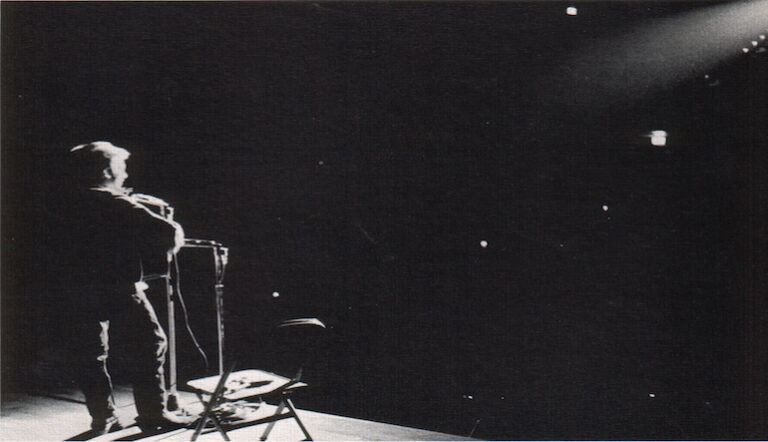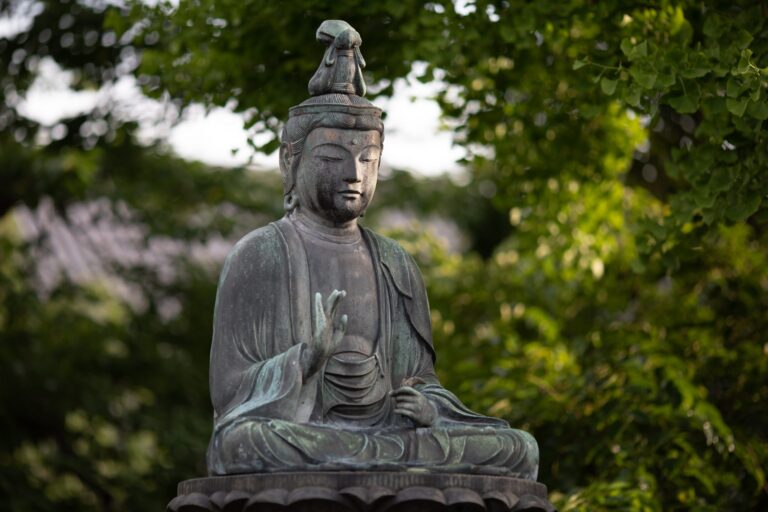The Slippery Reality of Bliss Montage
Ling Ma’s new short story collection, Bliss Montage, out last week, has the uncanny quality of a dream. The world seems as legible as it is in reality, but with one or two things slightly askance. A woman lives in a house with her 100 ex-boyfriends. A drug can make you invisible, but has fallout in your social circle. A man can unzip his human suit and reveal himself to be a yeti, maybe even give you a pamphlet on yeti lovemaking (“difficult and painful at first, but easy once you’ve done it more than thirty times”). The premise of every story shimmers a bit oddly, an oil slick in a parking lot that distorts the picture, just a little bit, but beautifully. It is truly a Bliss Montage—a film term Ma credits to film historian Jeanine Basinger in the acknowledgments—a joy ride through many different worlds.
Ma’s dream-like worlds are so dreamlike because they don’t interrogate their status as such. The odd or uncanny is so real as to be unremarkable. In “Yeti Lovemaking,” a woman who goes home with the man who is actually a yeti does not spend the rest of the story recovering from the shock, or running in fear, or marveling that she lives in a world where yetis are real. The story doesn’t waste time giving us a rundown of the real or the fantastical—it simply begins where it begins, with a yeti who wants to hook up with our narrator. She doesn’t shrink or question; she reads the pamphlet she’s been given, called “Yeti Interaction and Appropriate Engagement,” a publication “sponsored by the Center for Yeti Well-Being,” from which she learns that “the yeti population stood at an estimated 19,300” and “only since the 1970s had they descended and learned to assimilate into human society.” Their diet? “Primarily plant-based.”
It’s a funny premise and so it’s also a funny story. But the real drive of the narrative is not so unfamiliar: a woman has a one-night stand with someone but in the process thinks of an old ex, the “you” that the story sometimes addresses itself to. The woman is sentimental about her ex: she recalls his bike accident, thinking that “if your body had been broken beyond repair, I would have paid them to pluck out those bones for me—me before all others: friends, family.” But where to place these feelings? She remarks that “whatever I felt, whatever this feeling was inside of me, there is no place for it. There is no place for it to go, and I would have to carry it around inside of me for a long time, so long that it would fossilize and become a part of me.” This quiet but powerful feeling, this thwarted longing and intense self-scrutiny—all of these inward turns are the territory of literary fiction, of our typical short stories. The yeti is just one more character, fantastical or not.
“Returning,” the collection’s next story, follows a woman trying to figure out her life and marriage. It’s the perfect pair to “Yeti Lovemaking,” which ends with a late-night phone call from the ex: “Your voice got soft. It sprouted nightshade. ‘Listen,’ you said. ‘Don’t hang up. Just listen.’” The very next story begins: “When I awoke, it was to a near-empty plane,” a sentence that seems like it could belong to the previous. The logic linking ideas and places is strangely dreamlike, feeling inevitable and yet familiar, a kind of déjà vu. Where one story ends, the other begins—whether they pick up each and every narrative thread matters less than if the mood stays consistent. The montage continues. It’s fitting, then, that “Returning” begins with waking up, disoriented and alone on an airplane, bringing us the same concept as “Yeti Lovemaking”—a woman, maybe a lonely one, reckoning with her life.
It’s interesting that many of Ma’s narrators are writers. The narrator of “Yeti Lovemaking” is a marketing copywriter, a job that she describes as creating “narratives for furniture.” The narrator of “Returning” is a novelist, whose book Two Weeks follows a husband and wife who set out to be temporarily cryogenically frozen, during which time their assets will appreciate. The wife ends up having a two-week delay, and ultimately chooses not join her frozen husband. The book within the book—another dream-like formation—of course says more about the narrator and her husband than she thinks. Is she too, like the wife in the story, losing faith in a bid for future prosperity? Her husband—also a writer, but a slightly more successful one—doesn’t get cryogenically frozen, but he does take place in a ritual in his home country, in which he is buried alive at night, hoping to wake up the next morning transformed.
And at stake for the narrator of “Returning” is narrative—the “linear narrative of marriage, house, baby” that she finds herself expected to fit into. She thinks about her book, which took most of her twenties to write and edit and publish: “the person who entered the dream was not the same one who awoke from it. I had overslept, only to find that, in the interim, friends had moved to the suburbs, had begun families. Their lives had progressed while my life had been frozen, was just now thawing.” The person who really has been in a holding pattern, frozen in wait, is the narrator. She’s less like the wife in her novel, who decides not to be frozen, but the husband who, once awoken from his frozen state, is not sure how to move through the newly disorienting world. The narrator is thawed out and transformed—but at what price?
Transformation is important to these characters. Almost every narrator is concerned with it. Can people change? Will you always want what you want right now? How can you plan a future that accounts for a different version of you that will exist beyond this time? The narrator of “Los Angeles” lives in a giant home with her ex-boyfriends, packing the literal baggage of her past into her house. And it’s no delusion either: her husband and children know “the boyfriends,” as they are called, and see them around. Yet her drive is not to change but, it seems, to archive past versions of herself—which is simply another way of appreciating a narrative of transformation.
In Bliss Montage, almost every narrator sees themselves transformed by dreams and desires and moments that seem just shy of reality. As the narrator of “Returning” remarks, “standing in front of the airport window, I understood with the lucidity of the just-awoken.” This feeling of a slippery understanding, an almost certain state, is like reading Bliss Montage. But is it just waking up, or is it a slow descent into a dream world? Ma’s stories refuse to chart any answer to this question, refuse to worry about anything but their contents, resisting narrative logic and future expectations. These stories seem to ask us to take a pause from thinking about both the future and the past, to settle down into the whirl of the montage, and maybe even enjoy it.


